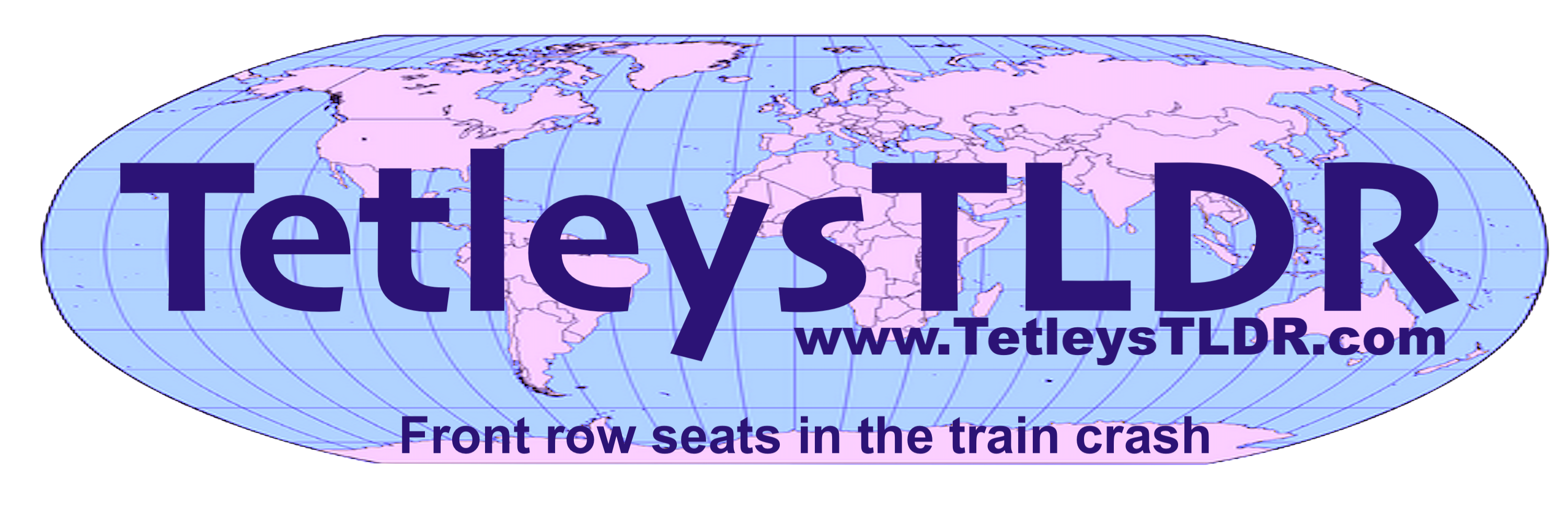Mahmood is buying herself a one-way ticket to the Hague
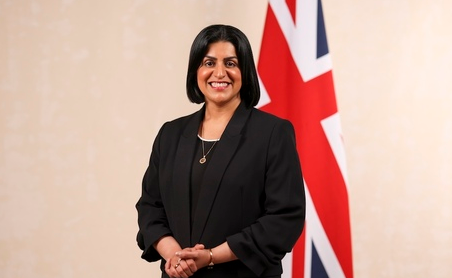
TetleyTLDR: The Summary
By banning anti-genocide marches, Shabana Mahmood has crossed from politician to accomplice. Silencing protest against mass slaughter isn’t 'maintaining public order', it’s criminalising conscience. When people are forbidden from marching for Gaza, Britain isn’t protecting its streets, it’s protecting its complicity. Mahmood’s 'cumulative impact' policy is a weasel phrase for repression: a tool to stifle movements that refuse to go quiet while children are buried under rubble. Every democracy worth the name depends on the right to witness and resist. Strip that away, and you’re siding with the perpetrators. The Hague may one day judge war crimes abroad, but those who enable silence at home share moral liability. Mahmood isn’t restoring calm: she’s buying her ticket for the dock, trading the cries of the living for the applause of those who’d rather not be reminded what genocide sounds like.
TetleysTLDR: The article
By banning anti-genocide marches, Shabana Mahmood is not just drawing a red line, she is buying herself a one-way ticket in the dock at The Hague with the rest of the fuckers. To frame that charge is not hyperbole but a moral claim: to ban protest against genocide is to side, intentionally or unintentionally, with those who commit mass atrocities. It is to punish conscience, silence dissent, and forestall accountability. When the machinery of state forbids people from protesting the gravest of crimes, we all are in bed with war crimes and complicity whether by omission or commission.
You need to ask why a Barrister is behaving in this reckless way, well you only have to follow the money. Shabana Mahmood's parliamentary office benefited from over £130,000 in 'staff support' funded through Labour Together, a think tank whose major backers include Sir Trevor Chinn, one of Britain’s most prominent donors to Labour Friends of Israel and other pro-Israel causes. That matters. It doesn’t mean Mahmood took Israeli money, it means the financial ecosystem surrounding Labour’s top figures is entangled with donors whose political loyalties are openly sympathetic to Israel. When those same MPs go on to restrict anti-genocide protests or mute criticism of Israeli war crimes, the question isn’t conspiracy, it’s credibility. Who really sets the moral compass of a party funded through such networks? Especially when you see just how much Israeli money has found its way into the Labour Party and to Labour MPs personally.
1. The context of repression
Over the past two years, Britain has seen waves of pro-Palestinian demonstrations, vigils and civil disobedience responding to the humanitarian catastrophe in Gaza. Wikipedia These protests reflect a broader moral and political reckoning: people demanding that the British state refuse complicity in what many see as war crimes, mass killing, collective punishment. In many cases, protesters have explicitly used the language of genocide, or analogies to ethnic cleansing, to confront the scale and severity of civilian harm in Gaza. The state’s reaction, increasingly, has been not only policing and surveillance, but legislative lockdown. The government has begun to talk about using 'cumulative impact', the frequency of protests in a location as grounds to ban or restrict marches. The Guardian Home Secretary Mahmood has defended the move as necessary to protect communities, especially Jewish ones, from intimidation, and to allow neighbours to live freely. The Guardian
But the logic is chillingly clear: dissent now competes with 'community safety'. To march against genocide is recast as a public order risk. This is the absolute inverse of democracy and is a panic response by a Government that is up to its nuts in war crime complicity and swilling with Israeli money.
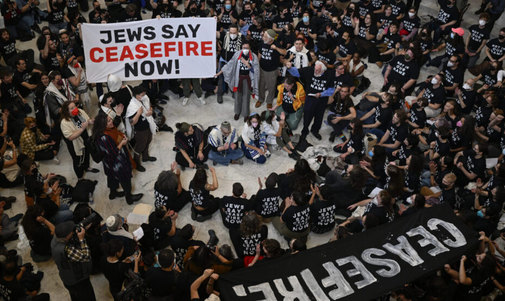
2. Why banning anti-genocide marches is a crime against conscience
(a) The right to protest is not a privilege, but a right
To protest is to speak truth to power. It is precisely when the state is implicated in or allied with wrongdoing that protest is most necessary. The right to demonstrate, to mobilise, mourn, demand is a foundational check on power. Restricting protest rights is not policing; it is muzzling. When states seek to ban protest against genocide, they seek not to maintain order but to control narrative. In such moments, restriction becomes a tool of impunity.
(b) Silence is complicity
If protest is banned at the moment when genocide is alleged, the world loses its first line of witness. The public, domestic and international, is deprived of direct, visible opposition. The argument for restraint is always framed in terms of disorder; the argument for protest is cast as threatening. But in truth, standing mute is the safer choice for those in power.
At the Nuremberg trials, one principle was clear: 'If justice is to be done, those who downplay or conceal mass crimes are themselves culpable'. When protests against genocide are criminalised, the state is complicit in suppression.
(c) The Hague is not hypothetical
This isn’t metaphorical. Under the Rome Statute, deliberate suppression of expressions of conscience in the face of mass atrocity can itself be evidence of complicity, obstruction, or facilitation. If a state uses internal laws to criminalise protest that denounces its partners or itself, that machinery of suppression can be viewed as trace evidence in a tribunal. This is wht she is buying her ticket in the dock. The ban is a political act not devoid of legal consequence, especially when the banned content addresses genocide, crimes against humanity, or war crimes.
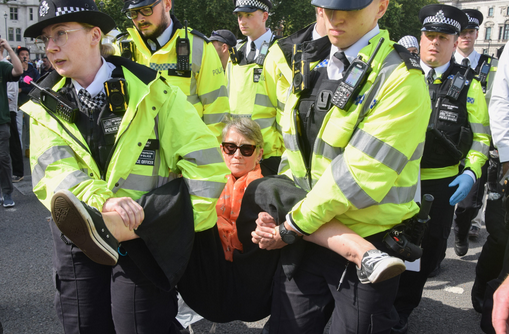
3. Mahmood’s justifications and their fallacies
Mahmood argues that she is not banning protest per se, but granting police greater powers to impose conditions on repeated gatherings. The Spectator She frames it as a balancing act: freedom to protest vs. the right of others to live free from fear or intimidation. The Guardian But every such balance invites abuse and as a barrister she fucking knows this.
- Cumulative impact is vague. Once frequency becomes a trigger, any activist movement can be outflanked. A campaign can be suppressed not because it is violent, but because it is steady, loud, morally insistent.
- Communities under threat are made premises for repression. Mahmood prominently cites fear within Jewish communities, and the risk of communal tension. The Guardian But fear may be stoked by state rhetoric itself. The remedy for heightened communal tension is not blanket bans, but more political commitment to safeguarding pluralism, dialogue, and protection.
- This is not a ban is a rhetorical sleight. The legal and policing architecture she proposes is a functional ban: if conditions, timing, size, location are all restricted, the protest loses its essence as mass public expression.
- Precedent for abuse. Rights once curtailed rarely restore themselves fully. What starts with genocide protest becomes a broader ban on dissent — extinctions of critical voices follow inevitably.
Let’s be blunt here: balanced restrictions are the oxymoronic soft boot of authoritarianism.
4. The stakes are higher than political calculus
One might reply: these protests are polarising, some chants are offensive, some banners reckless. The police cost is real, but that is precisely the moment for statesmanship, not silencing.
Consider what is being protested: the deaths of thousands of civilians, many of them children; mass displacement; the bombing of hospitals and refugee camps; the collective suffering of a besieged population - our complicity in this carnage. When protest is criminalised, the state signals that it will protect institutions of violence more fiercely than the victims of violence. Dissenters become second-class subjects. Protesters against genocide become quasi-illegal actors. The bar for moral legitimacy of the state shifts: it is no longer judged by whether it allows dissent, but whether it permits dissent about its accomplices. Moreover, this crackdown is not happening in an ideological vacuum. It comes on top of other repressive trends: proscribed groups, expanded anti-terror law, surveillance, protest restrictions. The shift is cumulative: every new curtailment chains to the next.
5. Imagining the indictment
What would an indictment at The Hague, moral or legal, look like,in this framing?
- Count I: Obstruction of witness and civic testimony. By banning protest against genocide, the state obstructs civil society from being a public witness to mass crime, which aids perpetrators in avoiding scrutiny.
- Count II: Collusion in impunity. The act of criminalising protest is a cover for impunity: it signals to states or actors that mass violence may proceed without domestic or international check.
- Count III: Systemic suppression of conscience during atrocity. When state power is deployed to block protest at moments of mass atrocity, it assumes the role not of protector but of censor and gatekeeper.
In other words, banning anti-genocide protest is not a side detail of law and order, it is a strategic shield raised around genocide itself.
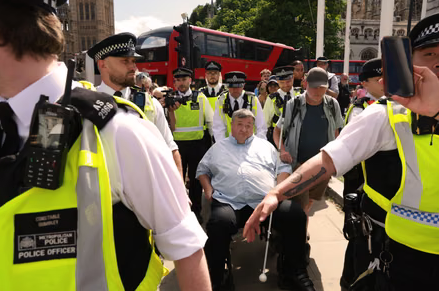
6. The counterargument: stability, public order, communal peace
Critics will say: order matters. The state must preserve public safety, avoid clashes, prevent escalation. Protests must be regulated. The Jewish community must feel protected. The urban infrastructure cannot sustain constant marches. So we need proportionate responses. That logic is lazy and too facile. There are more robust alternatives than semaphores and bans:
- Dialogue and mediation. Before suppression, the state should open channels of negotiation between community groups, activists, and religious leaders.
- Targeted protections. Jewish institutions can be protected, antisemitic hate crimes prosecuted, and threats mitigated without banning protest broadly and Jewish opposers of the Genocide should be listened to as well.
- Clear rules, not caprice. If certain slogans or flags are unlawful, define and prosecute those specifically, rather than broad silence.
- Safeguarding free space. The state should design protest zones, timing, and policing supports, not extinguish protest.
When the criminal state is challenged, the answer is not to muzzle the challenger it is to confront the cause. Banning protest is the route of cowardice, not courage.
7. A call to resistance
If Mahmood proceeds:
- Civil liberties organisations must mobilise legal challenges.
- Protesters must intensify symbolic acts of defiance, sit-ins, jury duty protests, theatre in public space.
- University communities, trade unions, and cultural institutions should refuse to accept blanket bans on dissent.
- International solidarity must insist that Britain’s police laws stay within human rights norms, not exceptions.
- Overwhelm the legal processes by refusing to accept cautions and refusing to comply.
- Bring the full power of the International Courts against the Senior Ministers in our Government.
Let's not forget once this flood gate is opened. It doesn't stop at Palestine marches.
Even at this late stage our Government could step back and acknowledge it has gone too far. Let the state show its moral face, not by shutting down dissent, but by facing it. The more it bans, the more testimonies will move underground. The more is cages protests, the brighter the light is shine on our piece of shit complicit Government.
Mahmood is carting us toward a world in which protest is a crime, and she is by her actions drafting an indictment for herself that could very well see her in the Hague. Something you wouldn't expect someone with a legal mind to do.
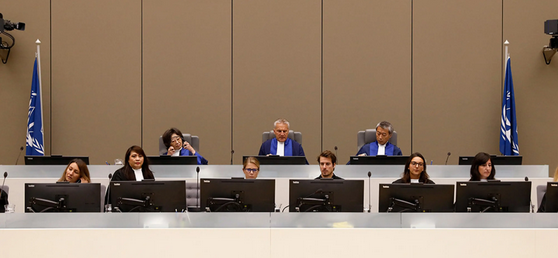
One final thought, Ms Mahmood. You know full well that the protesters are not lawbreakers and PA are not in any sense of the word terrorists: If as has been claimed there is some mythical evidence that proves otherwise you would have published it now to shore up your case. The real terrorists are a Government that supports a regime that routinely breaches international law and is presiding over a genocide. I say again, you are a fucking lawyer, you know how flimsy your position is. You know we are breaking international law and you know your personal position puts you in the crosshairs of the international criminal court. These are ordinary people standing against genocide. Citizens who refuse to sit silent while Britain arms, funds, and politically shields the slaughter of Palestinians in Gaza, and by Britain I mean your Government. They have done nothing more radical than sit down peacefully, liaise transparently with the police, and speak truth to power.
And yet you are making the choice to treat them like enemies of the state. You’ve made everyone a criminal. Do you really think banning protests, arresting peaceful people with a conscience and silencing those who shine a light on your own complicity will make a blind bit of difference?
A word of warning and a word of notice. You govern by consent and we are policed by consent. That is the compact that is the bedrock of our democracy and the foundation of the rule of law in the country. And you, the Justice Secretary, of all people, by deciding to silence peaceful protest are presiding over its collapse, and if needs be that consent can be taken away.
Do you really want to be remembered as the Minister who broke that covenant? The one who chose state repression over justice, fear over freedom, and silence over conscience? Because history will not forget who stood by while innocent people were crushed in Gaza, and here at home and it will not forgive those who traded their humanity for power.
A bit of shameless self-plugging here. This is www.TetleysTLDR.com blog. It's not monetised. Please feel free to go and look at the previous blogs on the website and if you like them, please feel free to share them.Better still have a look at the back catalogue and catch up on previous blogs at https://www.tetleystldr.com/tetleystldr-blog/tetleystldr-back-catalogue
